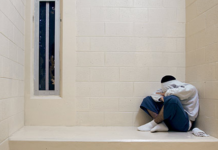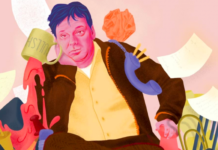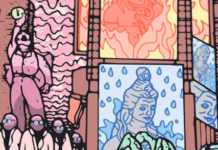England’s Mental Health Experiment: No-Cost Talk Therapy
From The New York Times: England is in the midst of a unique national experiment, an initiative that provides open-ended talk therapy free of charge...
The Psychedelic Miracle
From Rolling Stone Magazine: Both the underground practice of and aboveground research on the use of psychedelic drugs to heal PTSD, as well as depression, anxiety,...
Is Xanax Really the Bad Guy?
While any effort to generate awareness and potentially curb the benzodiazepine epidemic is commendable, we have to ask ourselves, is Xanax just the scapegoat in this situation? Will legislative action and media attention for only one benzodiazepine out of so many make any difference?
Psychology vs. Psychiatry – What Can Happen if the System Fails
From Vox Gibraltar: Many people confuse psychology with psychiatry. Too often, general practitioners recommend psychiatric treatment when psychological treatment or therapy could be just as effective without resulting...
The Upside of Neuroticism
From Pacific Standard: A new study from the U.K. suggests that there may be an upside to neuroticism - some neurotic people live longer lives....
”Broken Brains” and “Beautiful Minds”
When I first interviewed Brandon Banks, in the spring of 2008, while researching Anatomy of an Epidemic, he had recently entered Elizabethtown Community College...
Psychedelics and Depression
The Sunday New York Times Magazine special edition, "Health is All in Our Minds," explores the use of psychedelic drugs to help people cope...
An “Epidemic of Anguish” on College Campuses?
The Chronicle of Education has called the soaring rates of anxiety and depression among college student an “Epidemic of Anguish.” PBS interviews Jennifer Ruark, the editor of the Chronicle series, and Micky Sharma, the director of counseling at Ohio State University. Ruark reports that about “1 in 4 students reporting to campus counseling centers now are already on some kind of psychotropic medication.” Sharma adds that “just because a student is crying does not mean he or she needs psychotherapy. Sometimes that’s actually the type of emotional response that I would want to see.”
The Rise of Solitary
From Dissent Magazine: In her recently published book 23/7: Pelican Bay Prison and the Rise of Long-Term Solitary Confinement, scholar and advocate Keramet Reiter discusses the...
No Support for Antidepressants Over Benzodiazepines for Anxiety
A review of all the relevant research comparing benzodiazepines (BDZ) to antidepressants (AD) for the treatment of anxiety was published Psychotherapy and Psychosomatics this Friday....
“Why So Many Smart People Aren’t Happy”
The Atlantic interviews Raj Raghunathan about his new book, If You’re So Smart, Why Aren’t You Happy? “If you were to go back to the...
How to Cope With Social Anxiety Over Thanksgiving
In this piece for Medical News Today, Jasmin Collier describes five non drug-related ways to cope with social anxiety over the Thanksgiving holiday: preparing in...
Flibanserin’s ‘Effects’ Do Not Outweigh Harms, Review Finds
Despite concerns about the risk to benefit ratio, the FDA approved flibanserin (Addyi) to treat low female sexual desire in August. In a new...
Study Explores Sexual and Intimate Partner Violence in College Women with Disabilities
A new study explores sexual violence and intimate partner violence in college women with mental health related disabilities.
Is Your Job Bullshit? David Graeber on Capitalism’s Busy Work
From In These Times: Over a third of British workers believe their job makes no meaningful contribution to the world. The rising number of people who have...
Environmental Factors Drive Mania
Harvard researchers investigated 6,214 cases of major depression for factors that would predict transition to bipolar disorder. Clinical characteristics such as age of onset...
Fear is Life Force … (in Clinical Circles it’s Often Called Anxiety) – An...
It’s not just in spiritual circles but also in psychiatric and mental health circles that fear and anxiety are too often medicated away instead of worked with. It’s not easy to work with it and a lot of professionals don’t know how to hold such space for such courageous facing of the dark parts of psyche and so many people don’t learn that it’s actually possible. For those of us who’ve come off psych drugs and faced severe psychiatric drug withdrawal syndrome it becomes a necessary and often heinously difficult initiation . . . Learning to embrace my experience and surrender to it was the way through for me.
Living Through the Catastrophe
In this piece for ROAR Magazine, Jerome Roos explores the psychological, social, and economic impact of living under the imminent threat of catastrophic man-made climate...
More Research Needed on Climate Change-Related Ecological Grief
Researchers outline the concept of ecologically driven grief due to climate change and recommend future research to better understand the psychological impact of climate change.
Food Insecurity Linked to Mental Health Globally
Global analysis of 149 countries finds food insecurity is associated with poorer mental health.
Dehumanization Linked to Poorer Mental and Physical Health
A new review finds that dehumanizing language, including self-dehumanization, is connected to anxiety, depression, and disordered eating.
CBT More Cost-Effective Than SSRI for Panic Disorder
A two-year study of 150 panic-disorder patients found that the societal cost of cognitive-behavioral was less than that of CBT plus SSRI or SSRI...
New Study Finds That Lavender Extract Eases Anxiety
A new study in Frontiers in Behavioral Neuroscience has found that the smell of lavender extract has an anxiolytic effect.
Stress Sensitivity and Tolerance Associated With Psychosis
Researchers from Columbia and NYU found that stress sensitivity and impaired stress tolerance was greater in a cohort of 65 individuals deemed at high...
Patients More Likely to Refuse Drug-Only Treatment, Study Finds
The American Psychological Association (APA) recently published a study finding that patients assigned to drug-only treatments were more likely to refuse treatment, and more likely to drop out before treatment completion, than patients assigned to psychotherapy only.
























